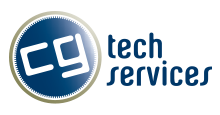Wearable tech and mobile apps are great examples of innovations that significantly improve patient care. As a healthcare provider, you’ve likely had patients ask you about which healthcare apps and wearable technology they should be using. Here are the things you need to consider when making a recommendation.
Here’s how hospitals can benefit from managed IT services
New technology is the heartbeat of modern medicine, which means hospitals spend more every year on IT to accommodate it. Whether your practice is struggling with integrating innovations or managing technologies, managed IT services providers (MSPs) are an ideal IT support option.
Getting the right EMR system for your practice
You and your patients can benefit from having an electronic medical record (EMR) solution in your clinic, healthcare facility, or hospital. It helps healthcare professionals keep a more comprehensive and detailed record of all their patients’ medical information and treatment procedures.
PHI best practices that all business leaders should know
Protected health information (PHI) is a common target of cybercriminals, as the personal, medical, and financial information that comprise it can be abused for financial gain. This is why businesses that handle PHI should take every step possible to ensure that their clients’ data is always protected.
Big data’s positive effects on healthcare readmission
Business intelligence (BI) has fueled the growth of many businesses through the years, especially in the finance and manufacturing industries. Today, BI and big data also benefit healthcare businesses that are aiming to improve their processes and lower their readmission rates.
4 Important factors about HIPAA and your IT
Medical records are private and their exposure could lead to negative consequences such as social stigma and job discrimination. The Health Insurance Portability and Accountability Act (HIPAA) protects these data and grants patients the right to view their own health information so that they can enjoy more control over their care.
Social media guidelines to stay HIPAA-compliant
HIPAA was established to protect the privacy of medical providers and their patients. And while there are no specific guidelines when it comes to social media usage in healthcare, every healthcare organization must implement security protocols that adhere to privacy policies.
The benefits and drawbacks of EHRs
Numerous digital advancements enable healthcare organizations to address several key industry challenges, such as safeguarding medical records and providing better care management for patients. Electronic health records (EHRs), in particular, allow quick access to patient records, helping healthcare organizations diagnose patients more effectively, reduce medical errors, and provide safer care.
IoT in healthcare: Addressing security and privacy issues
From mobile apps that keep track of daily medication to smart operating room systems, the Internet of Things (IoT) is delivering greater convenience and functionality to healthcare practitioners and patients alike. However, the proliferation of IoT devices also brings new risks, vulnerabilities, and security challenges.
Preventing insider threats in the healthcare sector
Insider threats are security risks that come from within your organization. They could be any of your current or former employees, contractors, or associates who have knowledge about your computer systems and can expose your data. They are a major issue in many industries, the healthcare sector included.
